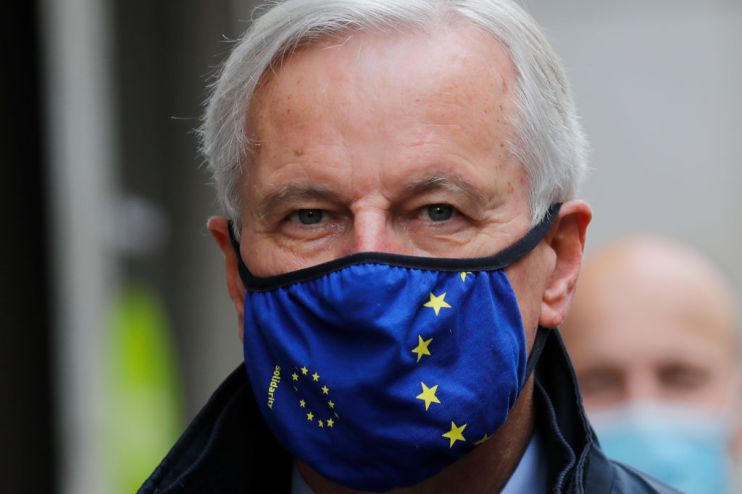Number 10 extends Brexit talks until Wednesday

Brexit negotiations between the UK and EU have been extended until Wednesday, Number 10 said today, as the two sides hold crunch talks in the hopes of hammering out a last-minute trade deal.
EU chief negotiator Michel Barnier arrived in London on Thursday to restart discussions with UK envoy David Frost after talks stalled last week.
Talks were due to wrap up today, however they will now be extended for an extra three days in the hopes of reaching a compromise over the key stumbling blocks of fishing rights, state bailouts and level playing field guarantees.
Northern Ireland Secretary Brandon Lewis said the extended talks were “a very good sign” a trade deal between the UK and EU can be reached.
“We have got to make sure it is a deal that works, not just for our partners in Europe but one that works for the United Kingdom,” Lewis told the BBC’s Andrew Marr.
Time is running thin for the UK to agree a trade deal with the bloc before Britain formally leaves the single market on 31 December.
Prime Minister Boris Johnson originally set 15 October as an “informal” deadline for reaching the “outline of a deal” with the EU, warning that he would walk away from discussions if an agreement had not been met by that date.
Both sides returned to the negotiating table on Thursday after a week-long standoff over the deadline miss, with Barnier telling reporters “every day counts”.
Sticking points
Frost and Barnier have locked heads over the issue of state aid rules, which limit government bailouts for ailing companies in order to ensure fair economic competition. The UK earlier this year rejected EU demands for Britain to continue following the bloc’s rules on such subsidies as part of a trade agreement.
The two sides have also failed to find middle ground on the future of the City, following several missed deadlines for completing necessary questionnaires. The UK is seeking equivalence arrangements for financial services, which would see British firms allowed to operate on a business as usual basis with the EU post-Brexit.
However, Barnier has repeatedly warned the UK that equivalence will only be granted if it is in the EU’s interest.
“We must look beyond short-term adaptation and fragmentation costs, to our long-term interests… And so, we will only grant equivalences in those areas where it is clearly in the interest of the EU; of our financial stability; our investors and our consumers,” said the EU negotiator.
“What does this mean in practice? It means that you need to get ready for 1 January 2021!”, he added.
Earlier this month, a parliamentary subcommittee warned that Britain’s £225bn professional services industry has been ignored by the government and is under “catastrophic” threat of losing business to the EU post-Brexit.
A House of Lords EU subcommittee report accused the government of ignoring the “hugely important sector” — which makes up around 13 per cent of the UK workforce — in trade negotiations with the EU.